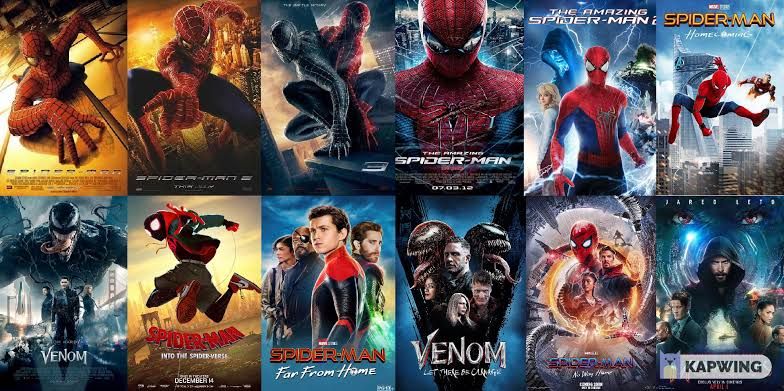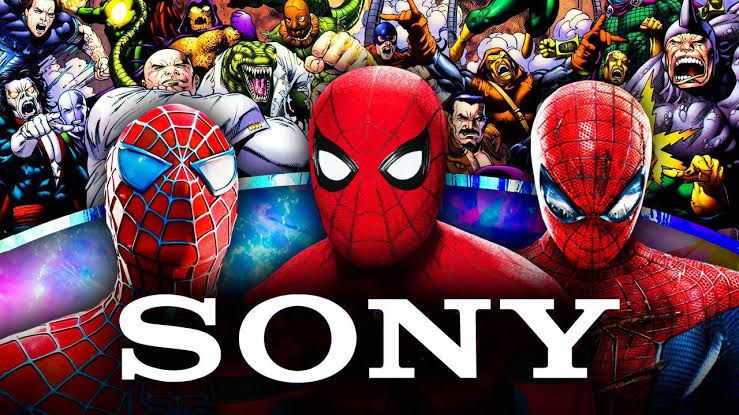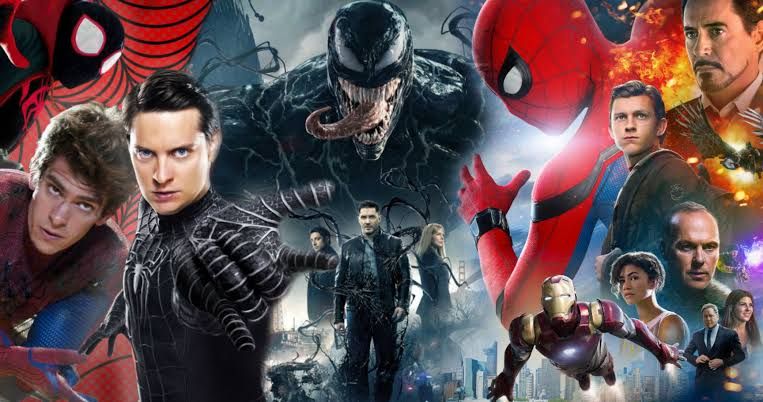Sony’s Spider-Man Universe Spinoffs End: Future Focus Shifts to Spider-Man and Spider-Verse Projects

Sony Pictures, the studio behind the Spider-Man Universe, appears to be making significant changes to its Marvel-based plans. According to reports, Sony is putting an end to its standalone Spider-Man Universe spinoff films following the release of Kraven the Hunter, which debuts on December 13, 2024. While Sony’s recent history of Marvel spinoffs like Venom, Madame Web, and Morbius has been plagued with diminishing box office returns and critical disappointment, the studio is now redirecting its efforts toward collaborations with Marvel Studios for the highly anticipated Spider-Man 4 starring Tom Holland.
The End of a Franchise Attempt
Sony’s efforts to create a cohesive Spider-Man Universe have faced numerous challenges. The studio began this journey with its Venom trilogy, which initially showed promise. The first Venom film became a surprise success in 2018, grossing over $850 million globally. However, its sequels failed to match that momentum. The third installment, Venom: The Last Dance (2024), earned $472.8 million, a sharp decline compared to its predecessors.

Other projects further cemented the challenges of Sony’s Spider-Man Universe. Morbius (2022) became a meme-worthy flop, while Madame Web (2024), despite its $80–100 million budget, earned just $100 million at the box office. With Kraven the Hunter costing $130 million to produce, early projections suggest it may also struggle to achieve profitability, potentially making it the biggest financial disappointment of the year for Sony.
Insider Perspective: A Lack of Quality Control
Industry insiders have pointed to a glaring issue in Sony’s approach: quality control. “The biggest issue with the Sony Spider-Man spinoffs seems to be the lack of quality control. The movies just aren’t good,” a source was quoted as saying. The insider added that Sony has often chosen to produce films that lack audience demand, leading to lackluster performances. Madame Web was highlighted as an example of a film that no one asked for, creating a “no-win scenario.”
Sony’s inability to deliver consistent quality has compounded its struggles in building a franchise to rival the Marvel Cinematic Universe (MCU). After years of missteps, including the failed Amazing Spider-Man series in the 2010s, the studio now seems ready to pivot.

Turning Toward Marvel and the Spider-Verse
Despite setbacks in live-action spinoffs, Sony has found success in other corners of the Spider-Man brand. The Spider-Verse animated films, starting with Spider-Man: Into the Spider-Verse (2018), have garnered widespread critical acclaim and commercial success. The sequel, Spider-Man: Across the Spider-Verse (2023), more than doubled its predecessor’s box office earnings, taking in nearly $700 million worldwide and securing numerous awards and nominations.
Sony is now focusing on completing the third installment, Spider-Man: Beyond the Spider-Verse. At the same time, the studio has plans to bring Miles Morales, the star of the Spider-Verse franchise, into live-action within the Marvel Cinematic Universe. This move could open a new chapter for both Sony and Marvel Studios, further solidifying their partnership.
Additionally, Sony is exploring television adaptations within the Spider-Man Universe. A live-action Spider-Noir series is in development for Amazon Prime Video and MGM, with Nicolas Cage reportedly reprising his role from the animated films.

The Focus Shifts to Spider-Man 4
As Sony presses pause on standalone projects, its primary focus has shifted to collaborating with Marvel Studios to develop Spider-Man 4. This partnership has historically yielded tremendous success, with the last installment, Spider-Man: No Way Home (2021), becoming a cultural phenomenon and grossing nearly $2 billion at the global box office.
By prioritizing quality over quantity and relying on established characters like Peter Parker and Miles Morales, Sony seems to be positioning itself for a more sustainable future. The studio’s efforts to branch out into spinoffs may have faltered, but its core Spider-Man properties remain as popular as ever.

A Pivotal Moment for the Superhero Genre
The challenges faced by Sony reflect a broader shift in the superhero movie genre. Once a guaranteed box office draw, superhero films now face increasing competition, audience fatigue, and growing demands for innovation. Sony’s pivot away from spinoffs could signal a need for studios to rethink their strategies, focusing on quality storytelling and collaboration rather than expanding cinematic universes for their own sake.

As Kraven the Hunter prepares to hit theaters, the film may serve as both a conclusion and a lesson for Sony’s Spider-Man Universe. While the studio’s attempts to build a separate Marvel franchise may have ended, its renewed focus on core Spider-Man stories and the Spider-Verse could ensure the brand’s enduring success in the years to come.
